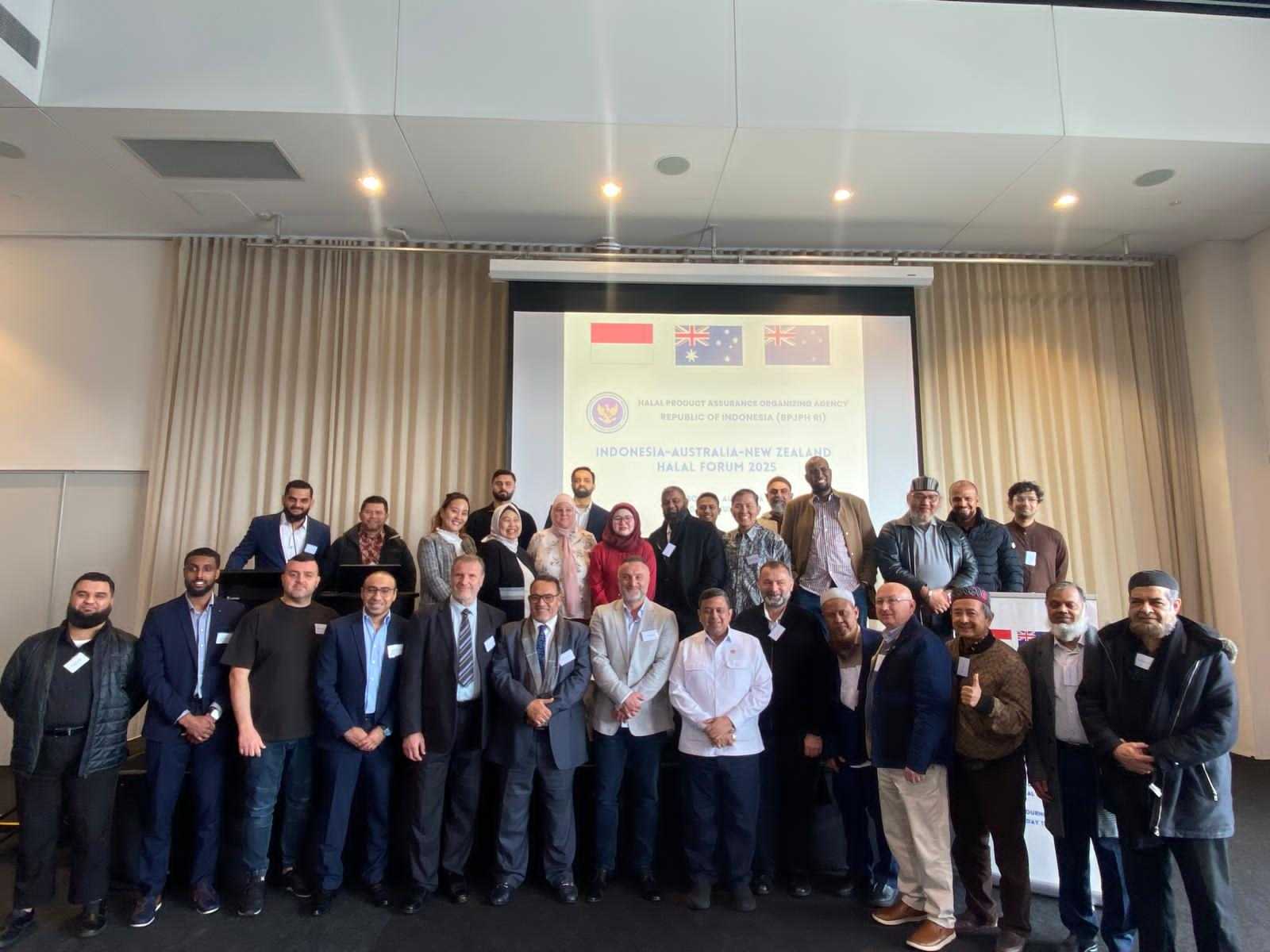Melbourne --- The Halal Product Assurance Agency of the Republic of Indonesia (BPJPH RI) held the Indonesia-Australia-New Zealand Halal Forum 2025 in Melbourne, Australia, on July 11, 2025. This event, part of the BPJPH's initiative to establish the ASEAN-Australia-New Zealand Halal Forum, brought together representatives from 15 Foreign Halal Institutions (LHLN) from Australia and New Zealand.
The forum was also attended by the Consulate General of the Republic of Indonesia in Melbourne, and representatives from the Australian Ministry of Foreign Affairs and Trade (DFAT). The forum provided an opportunity to exchange ideas, share knowledge, and discuss various challenges and opportunities in the halal product assurance cooperation sector, including mutual recognition of halal certificates and halal standardisation. The session also provided a platform for various LHLNs to share their input and perspectives, as well as their commitment to developing the halal trade and industry together.
"The Australia-New Zealand Halal Forum is a crucial cross-border halal forum for strengthening the regional halal ecosystem and strengthening Indonesia's role in the global halal economy. This is especially true now that halal has become a competitive advantage in the global halal ecosystem. Therefore, once again, the Australia-New Zealand Halal Forum is crucial," said Ahmad Haikal Hasan who is familiarly known as Babe Haikal, in Melbourne on Friday (July 11, 2025).
The significant influence of halal standards, represented through halal certification, continued Babe Haikal, is inseparable from the fact that halal has become a universal standard. In fact, halal has metamorphosed into a lifestyle, reflecting traceability, trustworthiness, and transparency. As a product standard, halal is traceable, trustworthy, and transparent, from upstream to downstream.
"Halal has become a lifestyle and a modern civilization. Some people in various countries even consider halal to be a symbol of health, cleanliness, and quality." Babe Haikal continued.
Babe Haikal further stated that currently, transactions in Indonesian halal products still lag far behind those in countries such as China, Brazil, the United States, and France. However, BPJPH remains optimistic about improving the quality and quantity of Indonesian halal product exports. Halal-certified products in Indonesia have experienced a significant increase, now reaching around 7.7 million halal-certified products. This figure will undoubtedly increase as halal certification becomes mandatory on October 18, 2026.
"There are huge halal transactions taking place. However, we have only captured a small portion. The ASEAN population is almost 1 billion, and a quarter of that is in Indonesia. This means that if we make even a small step forward in implementing halal regulations, our role in bringing Indonesian halal products to the global community can be realised," he added.
To capitalize on this significant opportunity, plans to develop a halal certification system, including harmonizing halal standards such as ISO, will be a focus and target for the upcoming BPJPH RI.
The forum also successfully fostered positive collaboration among LHLNs in the Pacific and Oceania regions, with all participants expressing their commitment to strengthening halal certification standards and promoting more sustainable growth of the halal industry and economy. BPJPH RI is ready to lead and direct the harmonization of global halal standards, create opportunities for a broader halal trade chain, and ensure the integrity of halal products worldwide.

